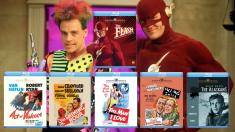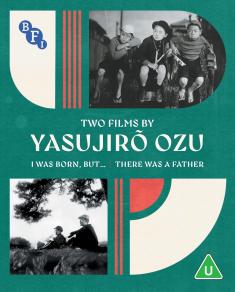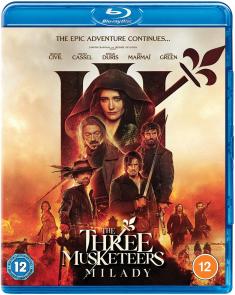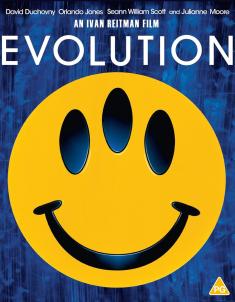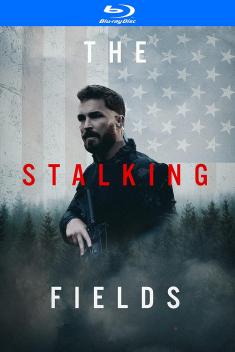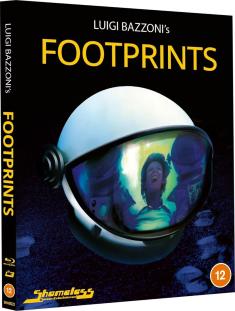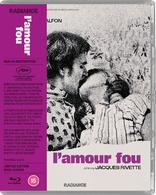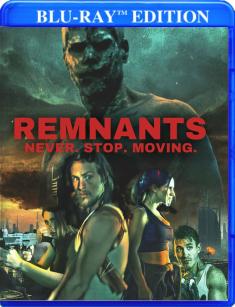The Private Life of Sherlock Holmes
Overview -
The acting, photography and score are tops (Leonard Maltin) in this lively satirical homage from legendary director Billy Wilder (Sunset Boulevard) and his long-time writing partner I.A.L. Diamond (The Apartment). When a beautiful woman claims that her dear husband has disappeared, the investigation takes Sherlock Holmes (Robert Stephens) and Dr. Watson (Colin Blakely) to Scotland, where to their surprise they uncover a plot involving a clandestine society, Her Majesty s Secret Service... and the Loch Ness Monster! But before he can deduce matters to the elementary, Holmes makes an error that may jeopardize the national safety of Britain... and ruin his reputation! The stellar supporting cast includes Christopher Lee, Genevieve Page, Tamara Toumanova, Clive Revill and Stanley Holloway.
Storyline: Our Reviewer's Take

Every filmmaker has one. The movie that got away. A motion picture groomed for greatness, mounted with meticulous care and bursting with passion, only to be systematically dismissed and butchered by heartless, miserly studio executives more concerned with making a buck than promoting an art form. For Erich von Stroheim, that movie was 'Greed.' For George Cukor, it was the 1954 version of 'A Star Is Born.' And for Billy Wilder, the director of such masterful classics as 'Double Indemnity,' 'Sunset Boulevard,' and 'Some Like It Hot,' it was 'The Private Life of Sherlock Holmes.' Wilder's biographer, Maurice Zolotow, calls the movie "Billy's most personal film, his most romantic visually, and his most romantic thematically." He also terms it "his most heartbreaking experience" and "the worst debacle of his career."
Wilder, a Holmes aficionado who dreamed for years of saluting Sir Arthur Conan Doyle's complex, eccentric detective in either a musical or finely etched character study, poured his heart and soul into the production. He toiled with his esteemed collaborator, I.A.L. Diamond, for almost a decade on the script, all the while envisioning the movie as his masterpiece and the culmination of more than 30 years of acclaimed work in the film industry. Following in the footsteps of such blockbusters as 'The Sound of Music,' 'The Private Life of Sherlock Holmes' was to be an epic, costing $10 million, clocking in at 200 minutes, and featuring an intermission. A special roadshow release was planned, raising the film's status from mere movie to must-see event.
Then, almost overnight, the bottom dropped out from under it. It was almost as if Wilder was Holmes and United Artists was his arch nemesis, Professor Moriarty, trying to thwart him at every turn. A series of big-budget flops - Julie Andrews' 'Star!,' 'Paint Your Wagon,' and 'Hello, Dolly' among them - made UA gun shy. Worried about recouping their investment, the studio canceled the roadshow engagements and demanded massive cuts that would reduce the film to a more palatable running time, enabling exhibitors to increase the number of showtimes per day, and thus increase United Artists' potential profit. Though the picture's episodic nature made trimming excess time easy, Wilder was left with no choice but to lop off entire sections of his beloved film, altering the dramatic flow and excising prized bits that explored subtle aspects of Holmes' character. To say the director was devastated is an understatement. Bitter and disillusioned, he considered his treatment by United Artists deplorable and an unforgivable betrayal of trust.
This is a sad story, but 'The Private Life of Sherlock Holmes' is not a sad film. It's by no means the great film Wilder hoped to produce (and that's not even due to the massive cuts), but it's still a testament to the writer-director's superior talent. Filled with the trademark wit that peppers all the Wilder-Diamond collaborations, and distinguished by an elegant style and excellent production values, this intimate profile of Holmes (Robert Stephens) and his dedicated companion and sidekick, Dr. Watson (Colin Blakely), is both graceful and endearing. Unfortunately, it's also a bit lumbering, self-indulgent, and - most shocking of all, considering how much footage already was trimmed from the original cut - unequivocally too long.
Comprised of two isolated episodes - one focusing on Holmes' encounter with a prima ballerina (Tamara Toumanova), who hopes to enlist the services of the detective in a highly unusual manner, and the other chronicling the efforts of Holmes and Watson to track down the missing husband of a mysterious Belgian woman (Genevieve Page) - 'The Private Life of Sherlock Holmes' spends as much time examining the quirks and idiosyncrasies of "the world's first and undeniably most famous consulting detective" as it does showcasing his enviable and legendary powers of deduction. The film boldly questions Holmes' sexuality, blatantly addresses his drug use (cocaine was his narcotic of choice), depicts his virtuosity with the violin, highlights the sibling rivalry he shared with his brother Mycroft (Christopher Lee), and celebrates his close relationship with Watson. Plenty of mystery, intrigue, titillation, and awkward situations follow, along with cameo appearances by the Loch Ness Monster and Queen Victoria (Mollie Maureen), all of which make this take on Holmes quite interesting and unique. All the pieces snugly interlock, yet a nagging malaise still afflicts the picture, sapping its energy, despite the yeoman efforts of the cast. Though I consider myself a Wilder fan, I honestly could not imagine sitting through another hour or more of the movie, had it not been cut; in fact, I believe a bit more judicious trimming would greatly improve the tale.
Stephens makes an exceptional Holmes, adding dimension and nuance to the character, while Blakely imbues Watson with the requisite jocularity without turning him into a buffoon. Together, they make a lively and engaging pair, in many ways eclipsing the more stylized interpretations of Basil Rathbone and Nigel Bruce, who portrayed the duo in a series of highly successful films during the 1940s. When the pacing flags, their chemistry enlivens the movie, but Wilder's leisurely approach often sabotages their efforts. Too much atmosphere drags the enterprise down and makes us restless, and though the resolution to the main mystery is quite clever and satisfying, the circuitous road Wilder uses to get there lessens its impact.
There's much to love about 'The Private Life of Sherlock Holmes,' and I'm sure it's the type of film that grows on you with subsequent viewings, but for all the work and passion that went into it, I expected more. I can understand why Wilder was frustrated with the finished product, but even without studio meddling and massive cuts, I'm not sure this planned masterpiece would have turned out the way its director intended. That's a mystery in and of itself, and one even the great Holmes might have trouble solving.
The Blu-ray: Vital Disc Stats
'The Private Life of Sherlock Holmes' arrives on Blu-ray packaged in a standard case. Video codec is 1080p/AVC MPEG-4 and audio is DTS-HD Master Audio 2.0. Once the disc is inserted into the player, the static menu without music immediately pops up; no previews or promos precede it.
Video Review

Though most films of the late 1960s and early 1970s possess a faded, wan look, 'The Private Life of Sherlock Holmes' appears especially anemic. A restoration is certainly in order for this troubled production, and a video makeover would undoubtedly inject some much-needed vibrancy into the movie. Wilder obviously shot the film with tremendous care, and hoped to give many scenes a grand, sweeping feel, but the years have not been kind to this print. Clarity is fine, but contrast is weak, with a washed-out pallor hanging over the film. Grain is present, but isn't too heavy, and the source material flaunts plenty of instances of age-related wear and tear, such as specks, marks, blotches, and reel-change markers. Colors are drab, black levels lack richness, and whites don't exhibit the crispness we crave. The scenes of the Scottish countryside, however, are beautifully rendered, exhibiting a lushness that's absent throughout much of the rest of the film. Shadow delineation is fine, background elements show up well, fleshtones remain relatively stable and true throughout, and close-ups are sharp enough. With the proper restorative work, this film could look magnificent in high definition, but in its current state, it's frustratingly bland.
Audio Review
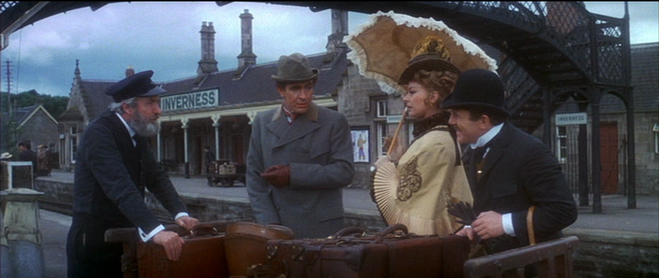
The DTS-HD Master Audio 2.0 mono track supplies good quality sound, but there's not much here to write home about. Miklos Rosza's score sounds robust and full, thanks to a wide dynamic scale that captures its myriad highs and lows without any hints of distortion. Subtleties and atmospherics are clear, sonic accents are crisp, and every word of dialogue is easily comprehendible. No age-related imperfections, such as hiss, pops, and crackles, could be detected either. This track isn't anything special, but no faults discredit it.
Special Features
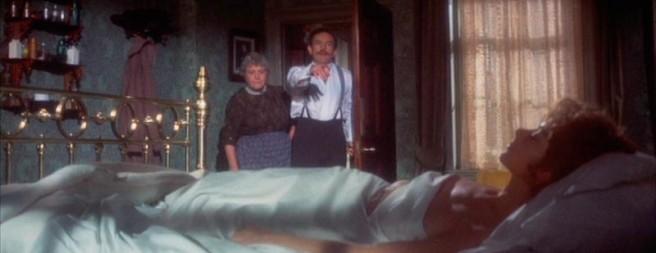
A fine supplemental package celebrates the film and sheds some light on the events that shaped this troubled production. It also gives us a glimpse of what the film might have looked like had United Artists executives allowed the movie to remain intact.
-
Featurette: "Christopher Lee: Mr. Holmes, Mr. Wilder" (SD, 15 minutes) - The legendary actor salutes "the greatest director [he] ever worked for" and talks about how playing Mycroft Holmes, Sherlock's brother, changed both his life and career. Lee analyzes the Holmes character, talks about his own experiences portraying Sherlock in three other movies, shares anecdotes about Wilder and the production, and notes he's the only actor in history who has played both Holmes brothers on the screen. Though not particularly enlightening, this 2003 interview is entertaining enough, and worth a look.
-
Interview with Ernest Walter (SD, 29 minutes) - The editor of 'The Private Life of Sherlock Holmes' discusses the severe cuts made to the film, explains some of the deleted material, and relates how he would have ended the movie were he given the opportunity. He also reminisces about his time in the army during World War II (he participated in the Normandy invasion on D-Day) and how that led him to become an editor. He also surmises that the film's "tongue-in-cheek tone" and personal slant went against audience expectations for a Sherlock Holmes movie, and thus contributed to its lukewarm box office reception. Though a little long, Walter's story is interesting, and he make some insightful points about the film.
-
Deleted Scenes (SD, 50 minutes) - Unfortunately, all the cut footage from 'The Private Life of Sherlock Holmes' is either lost or incomplete, but this fascinating compilation uses the printed screenplay, a selection of black-and-white and color stills, portions of the audio soundtrack, and the film's music score to give viewers an inkling of what the missing sequences would have looked and sounded like. Four episodes - the original prologue, "The Curious Case of the Upside Down Room," "The Adventure of the Dumbfounded Detective," and "The Dreadful Business of the Naked Honeymooners" (which allowed Watson the opportunity to solve a crime) - are roughly reconstructed. Though the latter sequence is presented with intact video, there's no audio soundtrack, so subtitles are employed. Neither presentation is optimal, but it's the closest any of us will come to seeing what Wilder initially envisioned for the hero he so admired.
-
Additional Audio Sequence: Deleted Epilogue Scene (6 minutes) - An allusion to Jack the Ripper and the possibility of Holmes solving that infamous case highlights the film's original bittersweet ending.
-
Theatrical Trailer (SD, 3 minutes) - "The private life of Sherlock Holmes was anything but elementary," proclaims this original preview, which does a good job of piquing one's interest in the film.
Final Thoughts
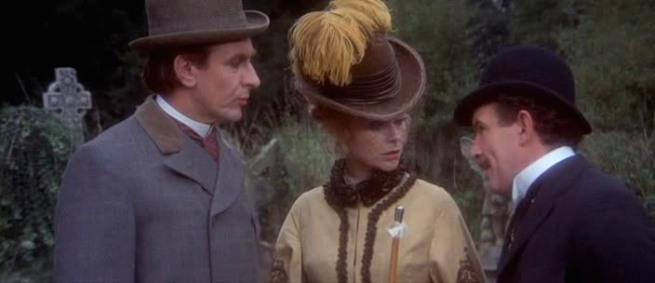
It may not be the masterpiece he intended, but Billy Wilder's 'The Private Life of Sherlock Holmes' - despite studio interference and massive editing - is a pleasant enough diversion for fans of one of literature's most enduring detectives. Though a bit rambling and uneven, this intimate portrait gets under Holmes' skin, examining his foibles and demons with more insight than other Holmes vehicles. Thankfully, there's enough Wilder wit and artistry on display - and enough narrative twists and turns - to maintain interest, and the performances by the European cast do the characters proud. (Robert Stephens and Colin Blakely may not best Basil Rathbone and Nigel Bruce - how could they? - but they honor Sir Arthur Conan Doyle's original vision better than any other actors.) Kino's Blu-ray presentation leaves a lot to be desired, due to a disappointing video transfer that calls attention to the movie's advanced age, however a nice supplemental package provides essential context and perspective on the film's colorful production history. Once seen, 'The Private Life of Sherlock Holmes' may not be a movie worth revisiting, but it remains an interesting curio that's worth a look, especially for those who admire Wilder and his impressive cinematic canon.
